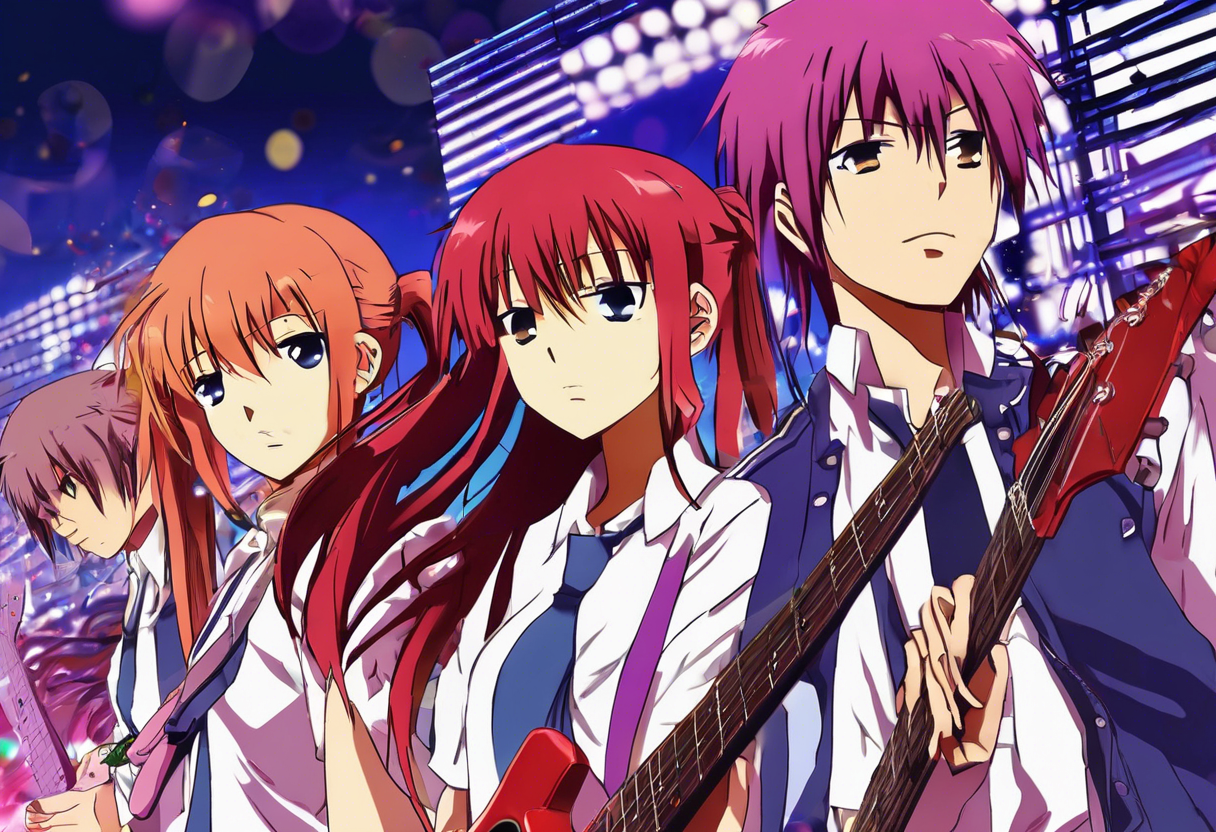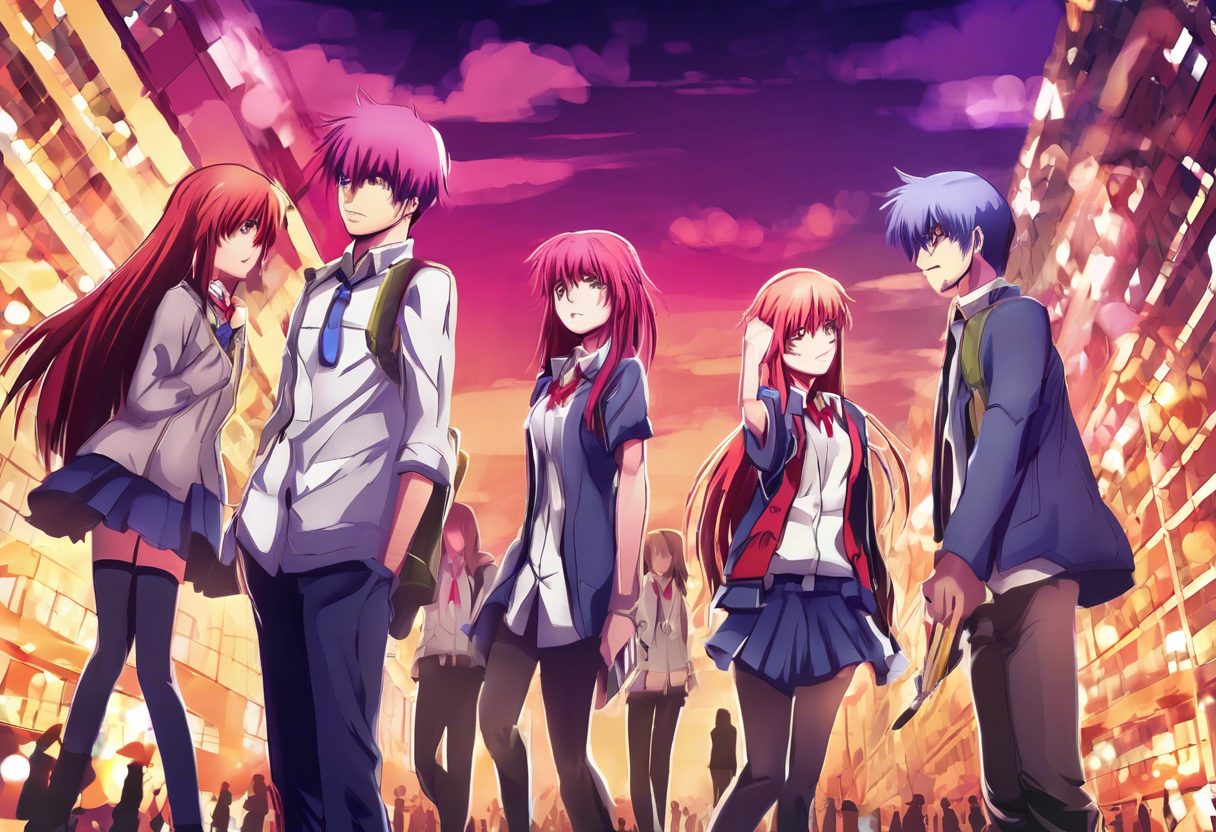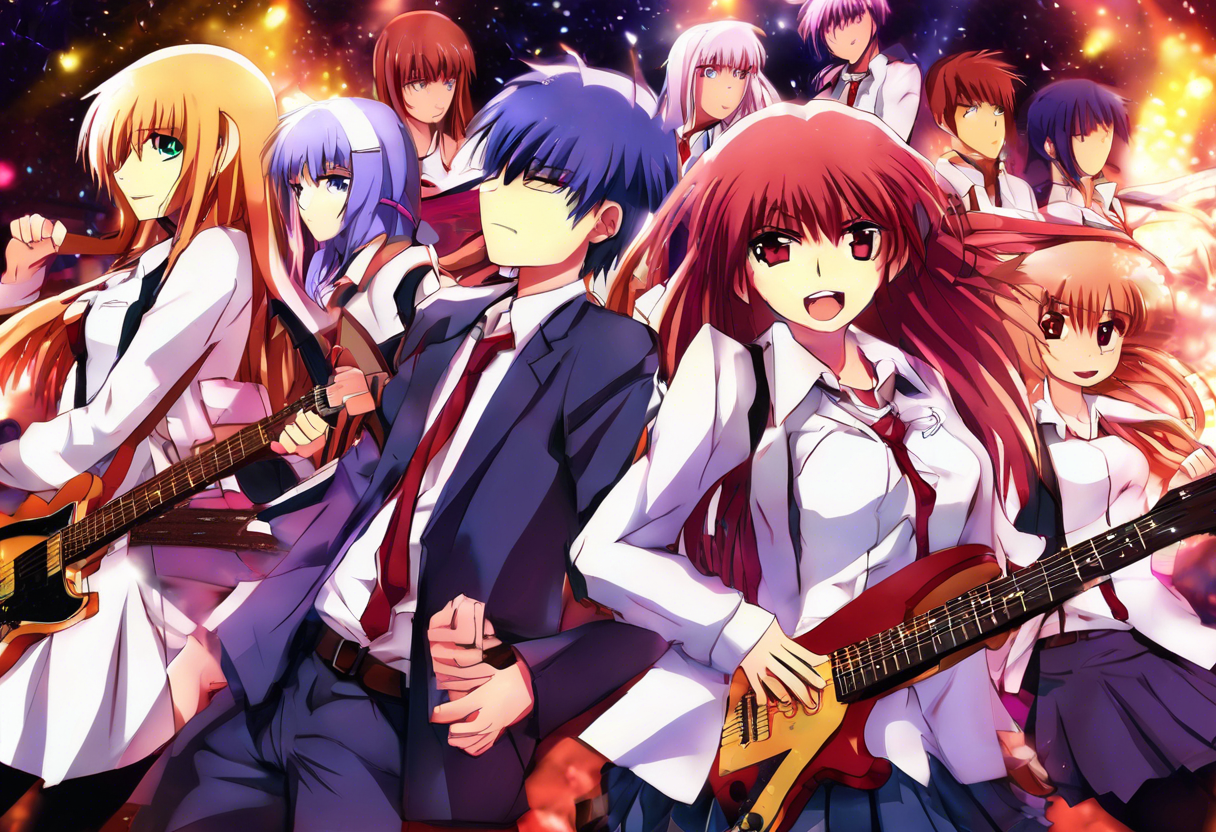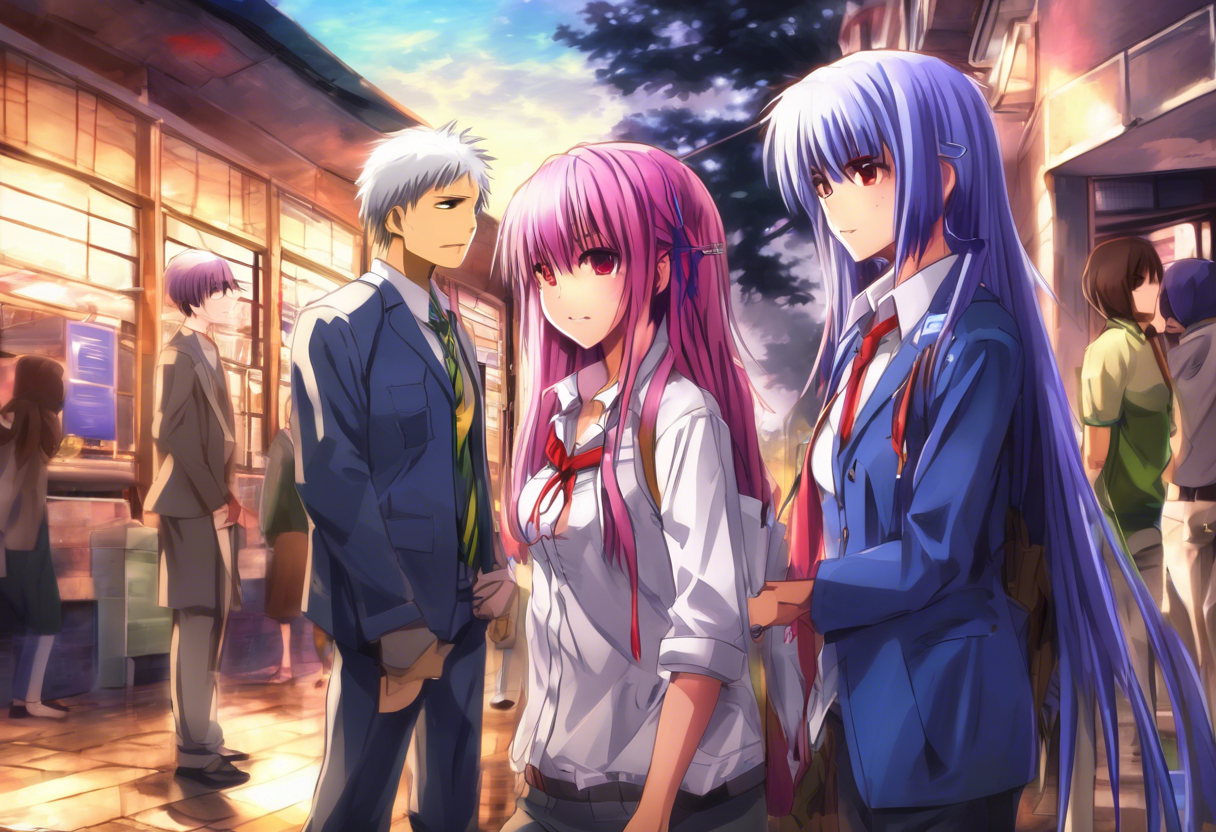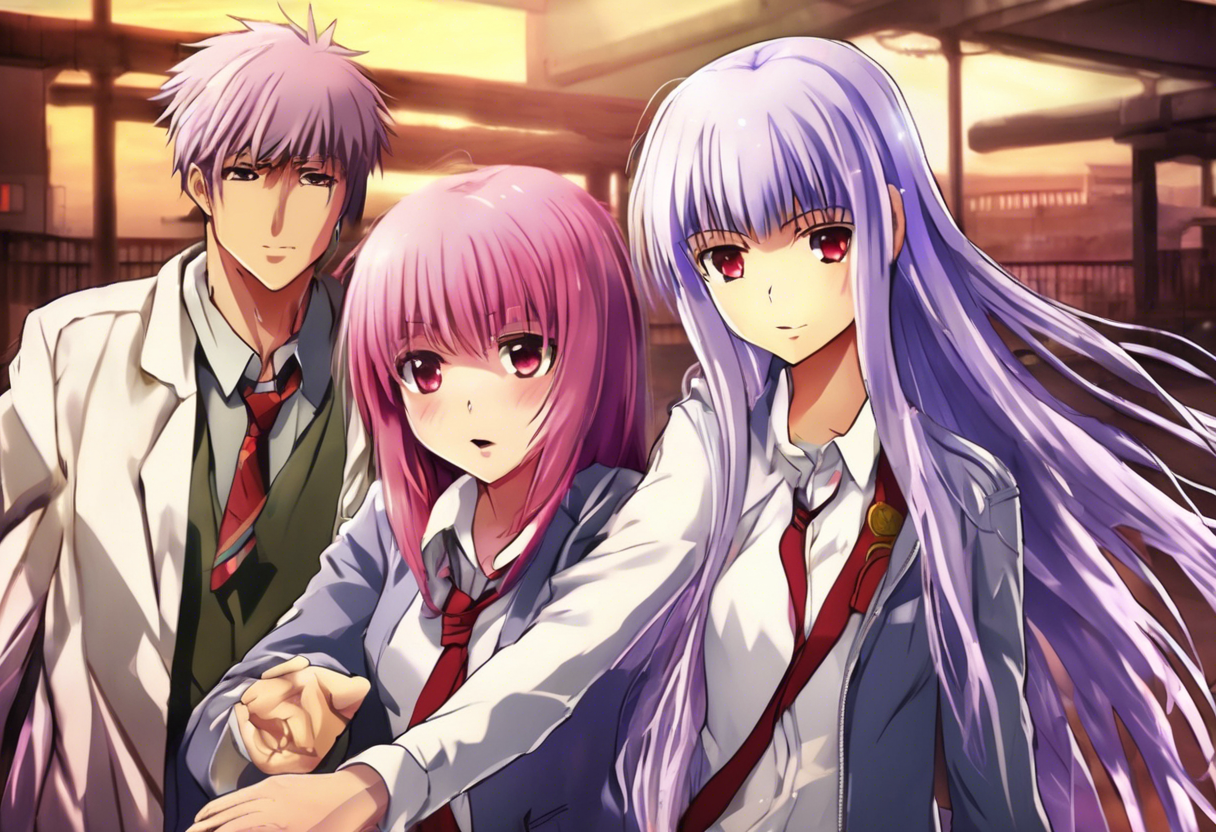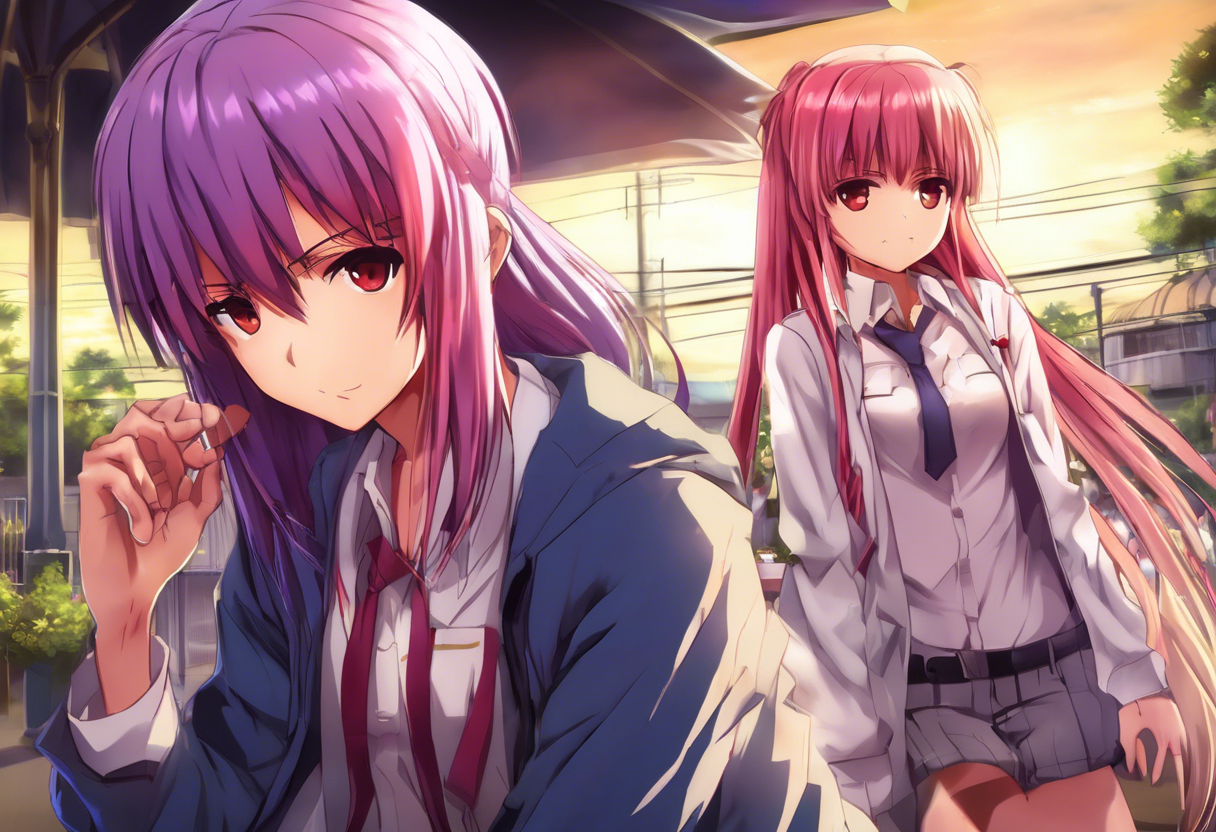Angel Beats! Episode 3: “My Song” is a pivotal installment that deepens the emotional and narrative complexity of the series. It originally aired in 2010 as part of the 13-episode anime directed by Seiji Kishi and written by Jun Maeda, with animation produced by P.A. Works and Aniplex. The episode stands out within the medium of supernatural action-drama anime by interweaving high-energy band performances with profound character backstory and thematic depth, particularly focusing on themes of redemption, self-acceptance, and the afterlife’s metaphysical rules. Episode 3 uniquely blends its music-centered subplot with the overarching conflict between the student rebel group SSS (Afterlife Battlefront) and Angel (Tenshi), revealing significant revelations about the world’s nature and character motivations, which enlarge the series’ scope far beyond simple school life fantasy or mere supernatural combat [1][2][4].
The episode begins following the setup of prior episodes: the SSS, a group of dead youths who resist their fate in the afterlife school purgatory, are planning an operation to undermine Angel, who enforces the school’s supernatural order. Having lost some ground in earlier episodes, the leader of the SSS, Yuri Nakamura, devises a new plan to hack into Angel’s computer to uncover her secrets. This requires a major distraction, and the band Girls Dead Monster (GDM) is enlisted to perform a large concert event to draw Angel’s attention away. Yuri also recruits Takeyama, a skilled but socially aloof hacker nicknamed “Christ,” to aid the effort. While the concert’s primary purpose is infiltration, the band, led by Masami Iwasawa, evolves from a mere distraction into a narrative and emotional focal point [1][2][4].
Amid preparations and moments of character interaction, the episode delves into the backstory of Masami Iwasawa, the lead vocalist and guitarist of GDM, who wrestles with her unfulfilled dreams and painful past. Iwasawa reveals to Yuzuru Otonashi, the amnesiac protagonist who has joined the SSS, her tragic life story—the loss of her family due to an abusive, alcoholic father and her thwarted aspirations of becoming a professional musician. These revelations deepen the emotional stakes and humanize a character previously seen mainly as the band’s frontwoman [2][4].
On the day of the concert, the sequence builds tension as the GDM takes the stage within the corridors of the afterlife high school. The school’s supernatural faculty and Angel attempt to quell the disturbance, enforcing strict order. However, during the disruption, Iwasawa breaks free and performs the titular ballad “My Song” on her acoustic guitar, a simple yet powerful moment that symbolizes her coming to terms with her past and desires. The performance is highly emotional both for Iwasawa and the assembled audience, culminating in her peaceful disappearance from the afterlife, signifying that she has found closure and moved on beyond the purgatorial school. This moment subverts the mechanics of the afterlife world previously assumed by the SSS—that one must adhere strictly to the school rules to vanish—and reveals that acceptance and personal peace, symbolized through creative expression and self-realization, is the true way to transcend one’s spiritual limbo [2][3][4].
Simultaneously, Yuri and her team infiltrate Angel’s room and discover that her extraordinary powers do not originate from divine intervention but rather from self-constructed weaponry supported by software she has developed herself. This revelation changes the perceived nature of Angel from a supernatural enforcer to a more human-like figure with agency and ingenuity, complicating the antagonistic relationship between her and the SSS. It disrupts the group’s prior assumptions about the cosmic order governing their afterlife predicament and opens new narrative avenues for confrontation and alliance [1][2][4].
In total, the episode meticulously balances action, heart, exposition, and world-building, dramatically expanding the series’ thematic and narrative complexity while maintaining its distinctive blend of humor and poignancy. Its integration of music as a storytelling device enhances the emotional resonance and makes it a standout episode within Angel Beats! and the broader anime genre.
The themes explored in the episode revolve predominantly around forgiveness, reconciliation, and self-acceptance. Iwasawa’s story encapsulates the pain of unresolved trauma—a youth troubled by familial abuse and the shattering of dreams—who ultimately finds peace through honest expression. Her ballad “My Song” symbolizes a cathartic release, showing how art can be a medium for healing and transcendence. This idea contrasts with the initially confrontational stance of the SSS, which fights against the system symbolized by Angel. The episode also challenges concepts of authority and divinity; Angel’s self-made weapons hint at human agency and creativity rather than predestined cosmic judgment. The depiction of purgatory as a setting where souls confront their regrets to move on reflects universal questions about life after death and redemption. These symbolic elements—music as salvation, technology as empowerment, and personal acceptance as liberation—contribute to the episode’s emotional impact and invite reflection on the nature of suffering and closure %[1][2][3][4]%.
Culturally, Episode 3 was well received by the Angel Beats! fanbase and contributed to the broader appeal of the series. The in-episode band Girls Dead Monster gained popularity beyond the show, inspiring real-world music releases and concert tie-ins that blurred the line between fiction and fan experience. The episode’s dramatic shift—transforming the band from a mere diversion to a source of genuine narrative weight—and Iwasawa’s powerful solo ballad performance are often cited as highlights in fan discussions and reviews. Its portrayal of sensitive issues like family abuse and dreams deferred added depth uncommon in similar genre works, which helped it stand out. The episode’s influence also extended through references in other anime and media that explore complex afterlife and redemption themes, marking it as an early 2010s touchstone for emotional storytelling intertwined with music [1][3][4].
Critically, Episode 3 was praised for breaking away from the comedic or action-heavy tendencies of earlier episodes to deliver a poignant character-driven narrative. Reviewers have lauded the episode’s nuanced character development, especially of Iwasawa, and the emotional payoff of her performance and disappearance. The episode was highlighted for its effective use of music not just as background but as a core storytelling element, elevating the medium’s expressive potential. Some critics noted occasional tonal inconsistencies with the series’ overall slapstick humor but acknowledged the episode’s success in deepening the story’s gravitas. Controversies were minimal but included mild debate over pacing and the sudden shift in focus away from group conflicts to individual resolution. Overall, the episode strengthened Angel Beats!’ reputation for blending humor with meaningful drama [1][4].
The legacy of Angel Beats! Episode 3: “My Song” resides in its enduring emotional and thematic resonance. It remains a frequently referenced episode for how music integrates with narrative in anime, influencing subsequent creators to explore similar devices linking character arcs and songs. Its balanced handling of heavy topics within a supernatural setting has inspired storytellers to approach themes of trauma and redemption with nuance. Fans continue to celebrate Iwasawa’s ballad as a highlight of the series, and the episode’s exploration of the nature of afterlife and personal agency enriches the overall mythology of Angel Beats!, giving creators a model for combining genre elements in ways that empower characters deeply. In cinematic history, this episode stands as a thoughtful exemplar of music-driven storytelling within animation, contributing to Angel Beats!’ status as a cult classic with ongoing artistic relevance %[1][2][3][4]%.
References
- https://antiotaku.wordpress.com/2010/05/09/angel-beats-episode-3-%E2%80%93-sing-all-your-cares-away/
- https://en.wikipedia.org/wiki/List_of_Angel_Beats!_episodes
- http://thestuffstoreofstuff.blogspot.com/2015/11/short-series-angel-beats-ep-3-my-song.html
- https://matthigh.wordpress.com/2010/05/15/anime-review-angel-beats-episode-3/
- https://beneaththetangles.com/2011/09/19/re-viewed-angel-beats-episode-03-and-choosing-your-way/

